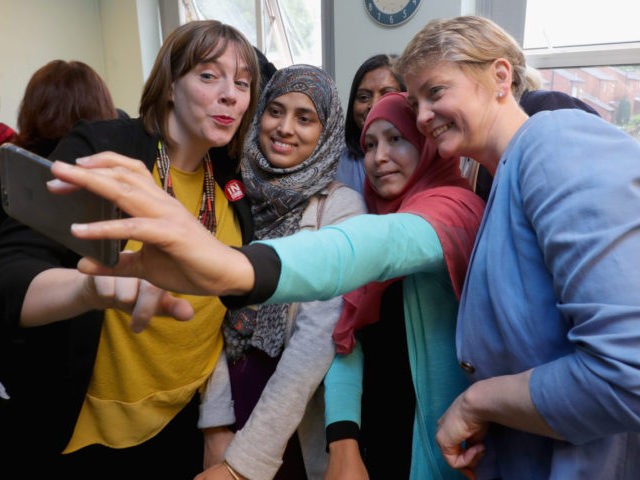Men should be banned from running for Parliamentary constituencies on behalf of the Labour Party until there are an equal number of male and female Labour politicians, a Labour MP has said.
Asserting that female MPs were likely to be the biggest losers from the upcoming boundary review, outspoken socialist MP Jess Phillips has called on Labour leader Jeremy Corbyn to bar men from standing in elections until gender parity has been reached within the party.
“I think the Labour Party has to make every seat an all women shortlist until we get equality,” she said.
“Currently 44 per cent of Labour seats are held by women. We want 50 per cent equality in this party, and for Jeremy to commit to this on the public record.”
The government is currently preparing to reduce the number of MPs in the House of Commons from 650 to 600 by the next election, with Labour set to take the biggest hit thanks to their domination of urban areas, which are currently overrepresented. It is set to lose around 23 sitting MPs.
“Women are more likely to have a marginal seat so when your boundary shifts, you’re more likely to lose your seat,” said Phillips, MP for Birmingham Yardley, according to the Evening Standard.
Her comments came at a committee meeting at which representatives from each of the four main parties in the Parliament – Conservative, Labour, Scottish National Party (SNP), and Liberal Democrat – agreed that there should be gender parity in Parliament.
Currently, the House of Commons is 71 per cent male, with 459 men and 191 women, The Guardian has reported.
Jeremy Corbyn, appearing on behalf of the Labour Party, told the committee that Labour may well introduce all-women shortlists to increase its female representation.
“We are determined to achieve 50% representation and our national executive will be considering this urgently at my request,” he said.
“It may well be we intervene to ensure there are all-women shortlists or, in some cases, make sure women are added to shortlists to ensure there is that choice there.”
He added that his party would be taking steps to ensure “50 percent of women’s representation in the next parliament”, raising the possibility of all-women shortlists, or women being added to shortlists where applicable.
Tim Farron, the leader of the Liberal Democrats, and Angus Robertson, the SNP’s parliamentary group leader, also spoke in favour of positive discrimination: Farron told the MPs that his party had passed a motion in the spring in favour of all-women shortlists and all-disabled shortlists, as well as a commitment to see more black and ethnic minority, and LGBT candidates put forward.
Robertson meanwhile told the committee that he was “proud to be the leader of the gayest parliamentary party”, adding that on the issue of female representation “there needs to be a mechanism” rather than simple encouragement.
However, Patrick McLoughlin, appearing on behalf of the Conservatives, accepted the need to see more women in Parliament but said his party would not be introducing positive discrimination measures as women within the party don’t like them.
“We don’t impose all-women shortlists because we do try and give local associations as much freedom as possible in the way they go about selecting their candidates before a general election”, he said. He added that the party did not impose all-women shortlists as to do so “would possibly risk a resentment which would not help that candidate once they were selected”.
His Conservative colleague Maria Millar, chair of the women and equalities committee, was unimpressed.
“It’s impossible to explain to the electorate why there have been fewer than 500 female MPs in 90 years,” she said. “It’s inexcusable and we can no longer say things we change by osmosis, something has to be done.”

COMMENTS
Please let us know if you're having issues with commenting.